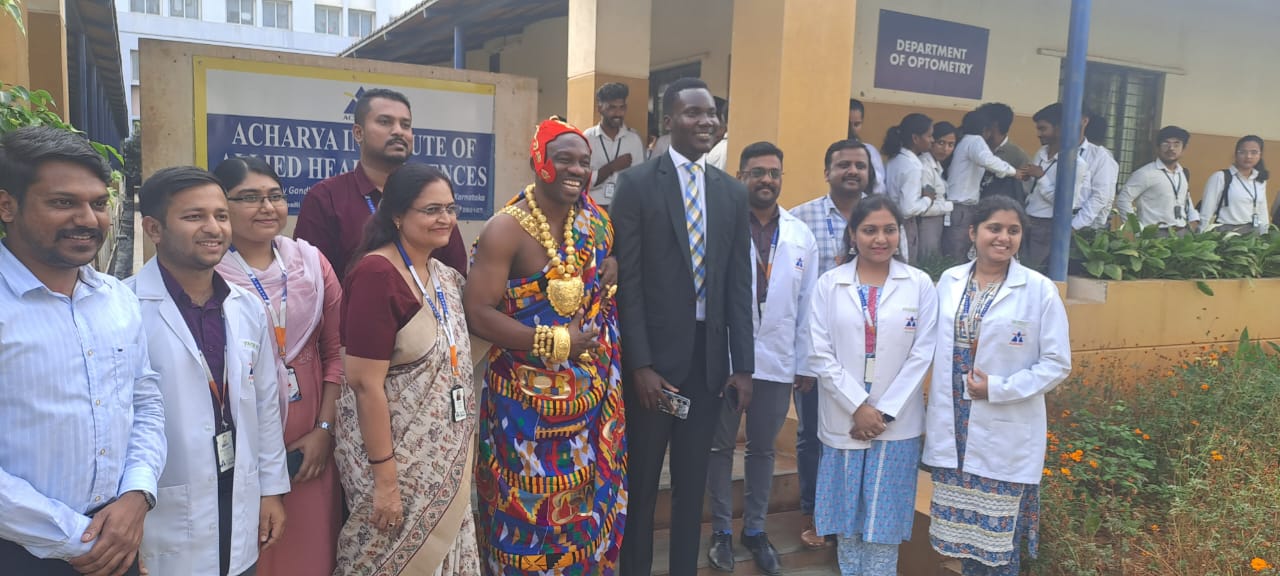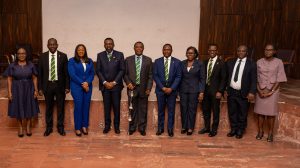
A climate communication workshop organized by final-year Development Communication students of the African University of Communication and Business (AUCB) has underscored the significant role of smallholder farmers in Ghana’s climate action agenda while revealing untapped business potential in organic agriculture and eco-friendly farming inputs.
The workshop, held in Osiem in the Eastern region , formed part of a broader student-led campaign on climate change communication.
The initiative, supervised by AUCB Communications lecturer Mr. Bubune Malik, is designed to tackle critical climate-related challenges confronting rural farming communities and promote sustainable farming practices through participatory education.
The Osiem workshop, which drew 29 smallholder farmers for a one-day intensive session, was themed “Climate Change Communication Campaign in Osiem: Strategies for Engaging Farming Communities and Driving Climate Action.” Facilitated by Mr. Samuel Barima Fosu, Birim North Regional Director of Agriculture, the event sought to deepen farmers’ understanding of climate change impacts and introduce profitable, sustainable alternatives to traditional farming methods.
At the core of the session was a call for a shift toward climate-resilient agribusiness models, including organic composting, agroforestry, cover cropping, and reduced chemical use—methods that not only protect the environment but also improve soil fertility and crop yields.
“We all want to sit under shady trees and eat from them, but how many of us actually plant them?” Mr. Fosu asked, while promoting agroforestry as both a climate and economic solution.
The training also underscored the business case for climate-smart farming, with testimonies from participants affirming how organic approaches could cut input costs and improve long-term productivity.
Farmers were encouraged to explore the use of organic bags and biofertilizers, opening avenues for new agritech products and eco-input businesses.
One participant, Kwabena Amoako, who farms pepper and garden eggs on five acres, remarked, “I’m grateful for the training. It will help increase my yield. But we also need government support to make these practices practical.”
Another, Felicia Adjekum, acknowledged a behavioral shift: “I had no idea that bush burning for land preparation contributed to climate change. This training has helped change how I think about my farm.”
The feedback confirmed strong demand for climate-resilient products and training, indicating a growing market for private investment in compost production, organic pesticide manufacturing, and agri-consulting.
Comfort Asiedua, another participant, emphasized the importance of sustainable pest control: “We shouldn’t use chemicals that totally kill pests because microorganisms are good for the soil. This will help with the sustainability of our crops.”
Facilitator Mr. Fosu recommended deeper practical engagement going forward, suggesting that business development institutions could partner with farmer groups to:
– Train on compost and biochar production
– Introduce scalable models for organic input distribution
– Co-develop integrated pest management tools
“Our farmers are ready, but they need support. The future of agribusiness is climate-smart,” Mr. Fosu said.
Reflecting on the outcome of the workshop, Mr. Bubune Malik, the students’ supervisor, stated: “The students demonstrated remarkable initiative and creativity in translating theory into impactful community engagement.
“This campaign reflects what Development Communication is all about—empowering local voices, bridging knowledge gaps, and driving behavioral change. It also creates a valuable learning interface between academia and the agricultural sector, especially at a time when farmers are key players in Ghana’s climate resilience journey.”
The AUCB-led campaign illustrates the power of development communication not only as an educational tool but also as a catalyst for inclusive agribusiness development.
Stakeholders, including government agencies, agri-startups, and impact investors, are being called upon to leverage such grassroots campaigns to build climate-resilient value chains and unlock green entrepreneurship in rural Ghana.
As Ghana deepens its focus on sustainable agriculture, events like these are sowing the seeds of a new agribusiness economy—rooted in resilience, driven by innovation, and nurtured by informed, empowered farmers.
The post AUCB students empower farmers with climate-smart agriculture skills appeared first on The Business & Financial Times.
Read Full Story






















Facebook
Twitter
Pinterest
Instagram
Google+
YouTube
LinkedIn
RSS